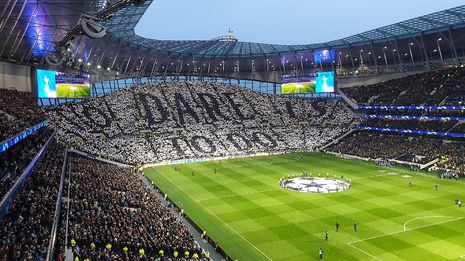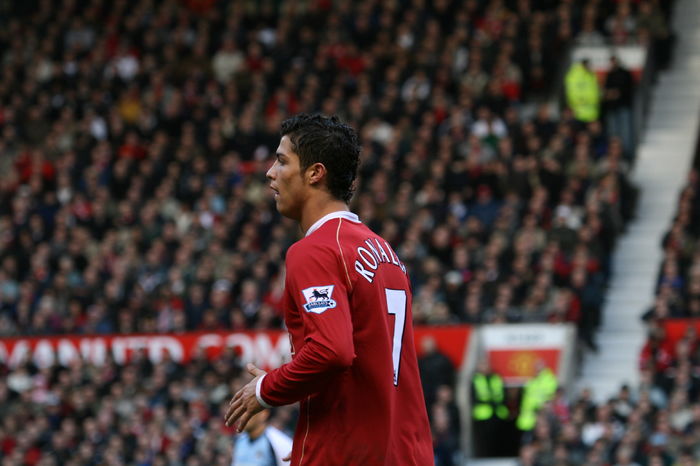‘Lads, it’s Tottenham’: can Conte revive Spurs?
In light of the recent appointment of elite manager Antonio Conte, Harry Atkins assesses whether he has what it takes to bring silverware to a declining Tottenham Hotspur side

A few years ago, Roy Keane described a Sir Alex Ferguson team-talk before a home game against Spurs, and all it consisted of was three simple words: “Lads, it’s Tottenham”. A simple yet damning speech, which suggested that Spurs were a team lacking in backbone and a side that Manchester United could easily walk over. No one would question the fact that the current United team is a shadow of some of Fergie’s greats, but you feel as though Ole Gunnar Solsjkær could’ve given that exact same team-talk before his struggling team comprehensively beat Spurs 3-0 away from home at the end of October (30/10). Once again, Spurs looked to be a team without direction.
However, you only have to cast your mind back just over two years to remember a Tottenham team that had seemingly broken this mould. The game that will stay forever in the mind of Spurs fans is of course their famous night in Amsterdam, where Lucas Moura scored a spine-tingling 96th minute winner to bring Tottenham back from two goals down against Ajax, sending them through to their first-ever Champions League Final. No one could accuse that Tottenham side of lacking a spine; instead of being the perennial nearly-men, they were knocking hard on the door of Europe’s footballing elites. They had a vibrant squad, a brand new stadium and, in Mauricio Pochettino, one of the hottest properties in the managerial world. So, how has it all gone wrong for Spurs in such a short space of time?
“Killing the golden goose has hardly led Spurs to new-found riches”
In all honesty, it seems as though Spurs have never really recovered from the hangover of losing the Champions League Final to Liverpool. They started the following season poorly, with only 14 points from their first 12 games, as well as a humiliation at the hands of Colchester United in the Carabao Cup and also a 7-2 home defeat to Bayern Munich in the Champions League. But despite these poor results, it still came as a shock to many when Mauricio Pochettino was sacked in November 2019. In my mind, this decision epitomised the brutal and short-sighted nature of modern day football. Not only had he guided them to arguably the biggest match in their history only five months previously, but Pochettino seemed to be building a project of sustained success. In Tottenham's 22 seasons in the Premier League prior to Pochettino’s appointment, they qualified for the Champions League just once in 2009/10 and finished below Arsenal every season. In Pochettino’s five full seasons in charge, he guided them to Champions League qualification four times and finished above Arsenal on three occasions, finally ending the dreaded St Totteringham’s Day. Sacking Pochettino seemed mind-bogglingly myopic, after what was really the first sustained slump of his Tottenham managerial career.
“There’s every reason to believe that Conte can continue his remarkable managerial record in North London”
It’s often said that hindsight is a wonderful thing, and certainly the subsequent failures of José Mourinho and Nuno Espírito Santo add to the sentiment that sacking Pochettino was the wrong call. However, in turning Spurs into a consistent Champions League qualifying team, and a side able to challenge for silverware, he arguably had Spurs punching above their weight. It seems as though club chairman Daniel Levy got greedy, but subsequent Premier League finishes of 6th and 7th, alongside limited hopes of Champions League qualification this year, suggests that killing the golden goose has hardly led Spurs to new-found riches. Instead, as indicated by Harry Kane’s attempts to force a move away from his boyhood club in the summer, Spurs have once again become a stepping-stone club lacking the ability to compete with the Premier League’s finest.
Off the field, Spurs have also experienced a downturn in fortunes. Again looking back to 2019, the club were riding a wave after having just moved into their new 62,000-seater stadium. Yet in March 2020, the decision was made to cut all the non-playing staff’s wages by 20% and place them on the government furlough scheme amidst the outbreak of Covid-19 in the United Kingdom. Tottenham supporters reacted badly to this news, especially as Daniel Levy himself earned a salary of £7m over the 2018/19 season, and two weeks later the club were forced to humiliatingly back down on the scheme. Spurs were also pressured to withdraw from the failed European Super League earlier this year in the face of nationwide fan outcry. There has been a growing discord amongst fans who feel that Tottenham is being run as a business first, and that its care for the fans, the community, and its values in general have very much played second fiddle.
Something clearly needs to change at the club, and the appointment of serial winner Antonio Conte last month (02/11) looks to be a step in the right direction. Conte is a manager in his prime, having won Inter Milan’s first Scudetto in eleven years last season. He’s also a proven Premier League manager, having secured the title in his debut season in charge of Chelsea back in 2016/17. He’s undeniably inheriting a talented squad with the likes of Kane, Heung-Min Son and Tanguy Ndombele. After two seasons of failure, you feel as though this is a pivotal moment for Spurs.
If Levy backs Conte and doesn’t get into a battle of egos with his potentially tricky new customer, then there’s every reason to believe that Conte can continue his remarkable managerial record in North London. However, if the inevitable Conte fireworks aren’t managed - think of him telling Diego Costa that he was surplus to requirements via text during his time at Chelsea - then that night in Amsterdam will fade further and further into darkness, and the words of ‘Lads, it’s Tottenham’ will creep back into the mindset of teams up and down the country.
 News / Colleges charge different rents for the same Castle Street accommodation2 March 2026
News / Colleges charge different rents for the same Castle Street accommodation2 March 2026 News / King’s hosts open iftar for Ramadan3 March 2026
News / King’s hosts open iftar for Ramadan3 March 2026 Theatre / Lunatics and leisure centres 4 March 2026
Theatre / Lunatics and leisure centres 4 March 2026 News / Angela Merkel among Cambridge honorary degree nominees27 February 2026
News / Angela Merkel among Cambridge honorary degree nominees27 February 2026 News / News in Brief: waterworks, wine woes, and workplace wins 1 March 2026
News / News in Brief: waterworks, wine woes, and workplace wins 1 March 2026









